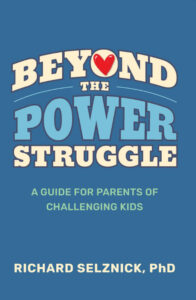“We’re Not Doctors…We Think You Should See a Neurologist”
 Oliver, age 8, has difficulty behaving in his third grade class.
Oliver, age 8, has difficulty behaving in his third grade class.
They were told by the school, “We’re not doctors, so we don’t know why he’s doing these things, but we think you should see a neurologist.”
The last statement is code language.
Here’s the translation – “We think Oliver has ADHD and needs to be on medication.”
The parents come to consult with me about Oliver, even though I am not the kind of doctor the school has in mind.
Oliver’s mom says, “We just don’t know why he does these things. If we only knew why, then it could be fixed. Maybe it’s his anxiety or his sensory issues.”
I can’t help myself pushing back.
“The problem with the “Why” question is it’s all speculation,” I say. “Even the best neurologists are using subjective rating scales and history to determine things like ADHD. So it becomes a “weight of the evidence” diagnosis. Usually there are a number of variables interacting at the same time, not all of which are in the child’s head. There are many variables that are external, too.”
“So how do we fix it?” (Ugh…the question I hate, but get all the time.)
“Well, they’re not car engines. Nothing’s broken. So there’s no fixing it. Rather than speculate, try and stay with the facts that are observed. What happened first, second, third? How did the adults respond? What were the consequences? Before starting on medication, let’s get a sense of the basic facts of the behavior. ”
Takeaway Point
Back in the day there was a popular TV Show, “Dragnet,” where the main detective would say, “Just the facts, Ma’m.”
Stay with the facts. “Just the facts, Ma’m.”
Feel free to make comment below.
To receive future blog posts, register your email: https://shutdownlearner.com.
To Contact Dr. Richard Selznick for advice, consultation or other information, email: shutdownlearner1@gmail.com.

 Copyright, Richard Selznick, Ph.D. 2023, www.shutdownlearner.com.
Copyright, Richard Selznick, Ph.D. 2023, www.shutdownlearner.com.


 Since my latest book, Beyond the Power Struggle: A Guide to Challenging Kids, was published some months ago, I have had some interesting interactions – a number of different interviews and parents contacting me about their kid’s behavior.
Since my latest book, Beyond the Power Struggle: A Guide to Challenging Kids, was published some months ago, I have had some interesting interactions – a number of different interviews and parents contacting me about their kid’s behavior.
 An issue often overlooked with children diagnosed as ADHD is a frequently occurring underlying variable of social judgment and difficulty with “reading” cause and effect. Difficulty with reading cause and effect impacts both social and academic functioning, such as understanding inferences with reading comprehension.
An issue often overlooked with children diagnosed as ADHD is a frequently occurring underlying variable of social judgment and difficulty with “reading” cause and effect. Difficulty with reading cause and effect impacts both social and academic functioning, such as understanding inferences with reading comprehension.
 Those of you following this blog for some time know there are some recurring themes in these posts (that mostly irritate me).
Those of you following this blog for some time know there are some recurring themes in these posts (that mostly irritate me). More and more, parents tell me that their children never get homework.
More and more, parents tell me that their children never get homework.